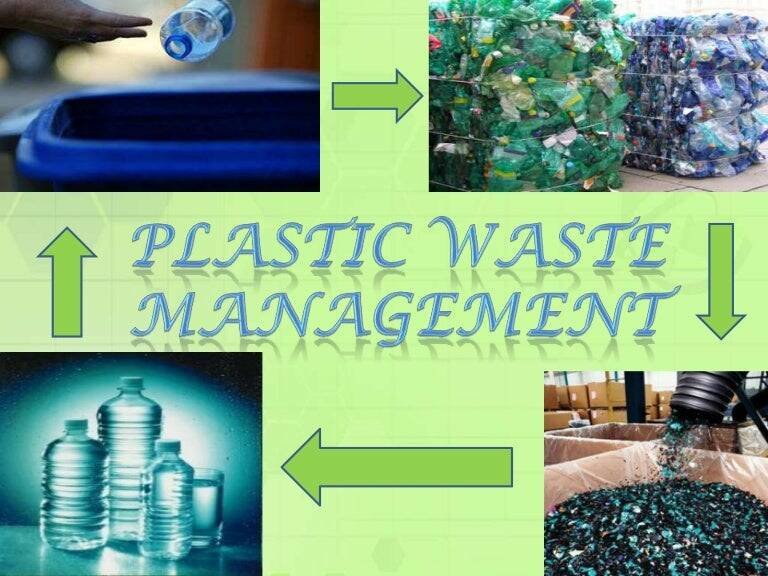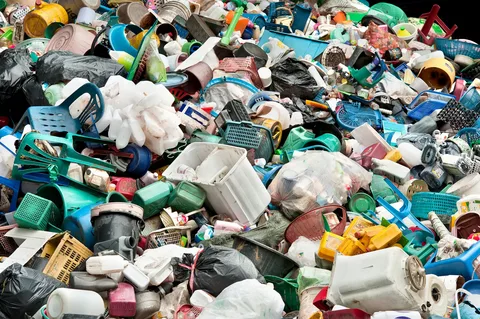Get total help on Plastic Waste Management - PWM Registration Enviroxperts without any problem
Package Inclusions :-
Outline Regarding the Plastic Waste Management - PWM Registration
Plastic waste management has turned into the main concern of global organizations around the world. This is because of individuals’ expanded consciousness of plastic waste’s unfavorable consequences for the environment and human health. Seeing this ascent in mindfulness among individuals and public specialists, the Indian government likewise took numerous drives to deal with the wild measure of plastic waste created in the country.
One such drive was executing the Plastic Waste (Management) Rules, 2016, where the government introduced the Extended Producer Responsibility (EPR) policy. Thusly, the public authority ordered the makers and different partners to add to Plastic Waste Administration through PWM Enrollment.
Market Outline of the Plastic Waste Management Business
The worldwide plastic waste administration market is assessed at 32.91 billion US Dollars in 2019 and will arrive at 41.58 billion US Dollars by 2027. The market is developing and is supposed to go on at a Build Yearly Development Pace of 3.1 percent from 2020-2027. Then again, India’s plastic reusing is assessed to be worth 6.06 million tons in the Monetary Year 2021 and will arrive at 12.43 million tons in FY 2030. The details show an increment at a high Build Yearly Development Pace of 6.98 percent until the Monetary Year 2030.
This development in the market of Plastic Waste Management can be credited to an expansion in the gathering of plastic waste, different endeavors of the public authority to guarantee its appropriate administration and an expansion in the mindfulness among individuals about the guidelines and the executives connected with it. Because of this, Plastic Waste Management through PWM Registration was introduced.
The Plastic Waste Management Rules, 2016
The Plastic Waste Management Rules, 2016 were ordered to supplant the PWM Rules, 2011, to present the idea of Broadened Maker Obligation. The guidelines give different measures and guidelines to limit plastic use in India. The fundamental target of PWM Rules, 2016 is to augment the extent of the pertinence concerning the ward as it presently incorporates rustic regions. The standards likewise presented the idea of the assortment back or repurchase strategy/arrangement of plastic waste by the makers or the producers.
The public authority has likewise forced different pre-enrollment charges on the makers and merchants of complex bundling and plastic sacks. The charge is likewise forced on sellers for exchanging plastic with the goal that a sound PWM framework can be laid out. Plastic Waste Management Rules, 2016, additionally endorse liability to the neighborhood bodies and gram panchayat to appropriately carry out and organize better waste administration frameworks in the town and among individuals. Furthermore, the standards command Plastic Waste Administration through PWM Enrollment. These standards further asked the utilization of plastic for the development of streets as per the rules gave by the Indian Street Congress.
Plastic Waste Management Rules, 2016 also increment the most reduced thickness of plastic convey packs from 40 microns to 50 microns. This was finished alongside specifying the base thickness to be 50 microns connecting with plastic sheets to work with better recycling and management of the waste.
Role of Extended Producer Responsibility:-
Significance of P Plastic Waste Management through PWM Registration
The guidelines make it required for the makers to contribute towards and get Plastic Waste Management through PWM Registration. The enrollment assumes a fundamental part in the administration of plastic waste as it helps specialists to –
Identifying Types of Plastic for Plastic Waste Management through PWM Registration
For Plastic Waste Administration through PWM Enrollment, according to the principles, just particular kinds of plastic are recorded. A portion of these are: –
EPR Obligation Strategy under Plastic Waste Management Rules
MoEF (The Ministry of Environment, Forest & Climate Change) has as of late executed new rules under The Plastic Waste Management (Amendment) Rules, 2022. These new alterations are for laying out and advancing the roundabout economy connecting with using plastic bundling waste and empowering the production and utilization of choices to single-utilize plastic.
These new guidelines also include EPR responsibility regulations such as:-
The registration process Plastic Waste Management through PWM Enrollment
Expanded Producers Responsibility for Plastic Waste is given to PIBOs. As per PWM Rules, 2016, Makers/Shippers and Brand Proprietors’ responsibility should be satisfied by establishing a framework for squander the board while including nearby bodies.
Notwithstanding this, it is likewise commanded that PIBOs with tasks in multiple states should get authorisation enlistment from Central Pollution Control Board (CPCB). Likewise, Makers, Merchants and Brand Proprietors who have activities in a couple of states are expected to get authorisation enrollment from Pollution Control Committee (PCC)/State Pollution Control Board (SPCB).EPR is required for Plastic Waste Management through PWM Registration.
| Category | Year | EPR Target (as a percentage of Q-Category-wise) |
| I | 2021-22 | 25% |
| II | 2022-23 | 70% |
| III | 2023-24 | 100% |
Documents submitted while filling out the application form
(a) GST or invoice as proof of sale
(b) Action Plan documents for fulfilling EPR liability
(c) in the event that the plant has a creation office ,District Industries Centre (DIC) is required
(d) Approved assent endorsement is expected under Air and Water Act in the event that the unit has a production facility
Consent Certificates
One of the main reports expected by PIBOs is Assent Testaments. The authorisation interaction include ssubmitting the application structure through the unified web-based entryway of the concerned Association Domain Contamination Control Council or the State Contamination Control Leading body of the connected state. The application should be joined by the natural specialists’ endorsements/archives or licenses. After that,the structure that is submitted is examined by the specialists. Following this, an approved government official visits the site for investigation and casings an extensive report accordingly .Ultimately, the assent declarations expected for Plastic Waste Management through PWM Registration are granted.
Note:-This is to keep in mind that the site inspection occurs only when the manufacturer applies for Consent to Operate.
Documents required for consent certificates
GST Certificate
Document required for GST Certificate
Company license
Extra Documents required for establishing the company and getting Plastic Waste Management through PWM Registration are –
Address proof such as
Residential Proof such as
Factory license obtained by PIBOs
To lay out their assembling units, PIBOs should list their business under Plants Act. According to the demonstration, PIBOs are recommended to gain a Manufacturing plant permit through the consent of the Main Investigator of the Work Chief Association. This is finished after examination of the plastic waste management site as indicated by the to the rules prescribed by the Factories Act.
Documents needed by PIBOs
For acquiring the Factory license to get Plastic Waste Management through PWM Registration, the following documents are required: –
How will Enviroexperts Assist You?
| Personalised legal assistance | Aid in Annual Report Filing | Support on filing for Renewal |
| Our group of legal specialists offers help all through the method involved with acquiring permit for Plastic Waste Management through PWM Registration. | We offer complete direction independently taking care of your particular necessities. Our group of a specialist likewise guide yearly report recording. | Our group of specialists likewise convey intensive help for documenting a restoration application for a PWM Registration for Plastic Waste Management Business. |




